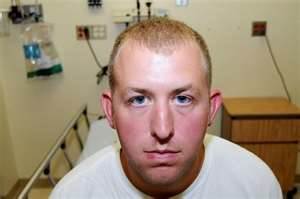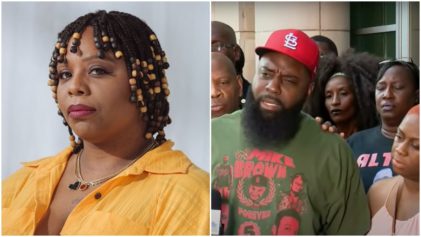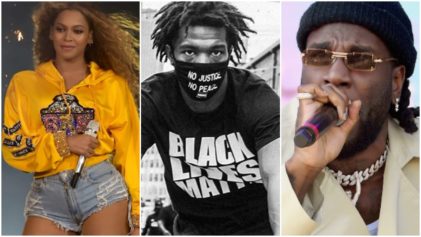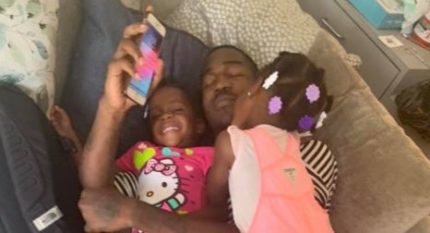In a case that could potentially transform the entire grand jury process to the benefit of Black people, Missouri’s attorney general has filed papers to prevent a grand juror from talking publicly about the inadequacy of the presentation St. Louis County Prosecutor Robert McCulloch made to the grand jury that was considering the shooting death of Michael Brown.
It was the grand jury’s decision to not bring charges against police officer Darren Wilson that elicited a storm of national outrage over the inability of Black people to get justice in the American legal system. Since that decision, a member of the grand jury filed a lawsuit through the ACLU on Jan. 5 to be allowed to publicly discuss the case, claiming that McCulloch was wrong when he implied all 12 jurors didn’t think there was enough evidence to charge Wilson.
This case could have enormous implications for African-Americans because the secrecy of the grand jury process is what the system relies on to protect police in cop killings. If prosecutors know that grand juries are free to talk about the proceedings, they likely will behave differently in the presentation of cases.
For instance, almost no information has been given to the public about the grand jury deliberations in the death of Eric Garner, who was killed in a chokehold by New York police officer Daniel Pantaleo.
Because the grand jury members are subject to a lifetime gag order, county prosecutor McCulloch essentially was free to characterize the deliberations of the Darren Wilson grand jury in any way he saw fit—and in a way that presented him in a more positive light than perhaps he deserved.
Missouri Attorney General Chris Koster filed a memorandum in federal court trying to protect McCulloch by asking for a dismissal of the claim brought by the unidentified grand juror. Koster’s memo says these matters are the business of the state courts, not the federal government, and that the grand juror has no standing because the juror is essentially preemptively suing McCulloch to prevent the prosecutor from bringing charges if the juror breaks the gag order.
According to Koster, it is impossible for the grand juror to be granted relief for something that has not happened.
“In this case, plaintiff is requesting the court to issue an injunction that would threaten the continued health and sound functioning of Missouri’s grand jury system,” Koster said in the memo. “Given the important state issues raised in this case, the court should abstain from exercising its jurisdiction over plaintiff’s claims.”
The AG also pointed to the redacted documents and testimony presented to the jurors that was publicly released by McCulloch as evidence that the process was transparent. But the grand juror’s suit claims the process wasn’t transparent because the documents were redacted, meaning much of the information was obscured by black marker.
Both Koster and McCulloch’s are Democrats.
Jeffrey Mittman, executive director of the American Civil Liberties Union of Missouri, which filed the lawsuit on behalf of the grand juror, said such filings “to prevent the court from reaching the merits of a case are not uncommon.”
“We are confident this matter will move forward,” he added.
The ACLU is explicit in its suit that it is not trying to overturn the grand jury process, knowing how heavily prosecutors rely on the secrecy of grand juries. The suit contends that the circumstances of the Wilson case are unique because there is such an intense public interest in hearing from the juror.
“The rules of secrecy must yield because this is a highly unusual circumstance,” ACLU attorney Tony Rothert said. “The First Amendment prevents the state from imposing a lifetime gag order in cases where the prosecuting attorney has purported to be transparent.”
“Right now there are only 12 people who can’t talk about the evidence out there,” Rothert told the Associated Press. “The people who know the most—those 12 people—are sworn to secrecy. What (the grand juror) wants is to be able to be part of the conversation.”
The suit contains fairly harsh descriptions of McCulloch’s performance, saying the legal standards in the case were discussed in a “muddled” and “untimely” manner.
There were stories after the grand jury verdict accusing McCulloch of a monumental error in not giving the jurors more options in bringing charges against Wilson. But many observers and legal experts concluded that McCulloch presented the case in a manner that would protect Wilson from prosecution.
“In Plaintiff’s view, the current information available about the grand jurors’ views is not entirely accurate—especially the implication that all grand jurors believed that there was no support for any charges,” the lawsuit says.
The grand jury of nine whites and three Blacks met over the course of three months, coming together on 25 days to hear more than 70 hours of testimony from about 60 witnesses. Rothert said the grand jury members were able to compare how McCulloch handled the Wilson case to the previous cases they saw, since they had been empaneled since May and had been hearing other cases before they started hearing evidence in the Brown murder in August. The lawsuit accuses the prosecutor of handling the Wilson case much differently than the other cases, with “a stronger focus on the victim.”
Jim Cohen, associate professor at Fordham University Law School and a grand jury expert, told the AP that the juror had a strong case.
“Believe me, there’s already more than a fair amount of skepticism about whether this process was fair, notwithstanding Mr. McCulloch’s cynical attempt to pretend that it was fair,” he said. “This matter has been discussed by virtually everybody in the universe with the exception of any person actually subjected to the presentation of evidence.”



